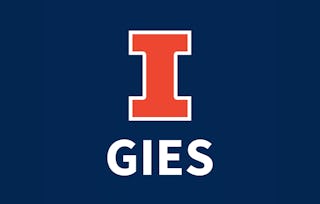Financial literacy is a fundamental capability for any business leader, whether you are running your own small business/start-up or working at a large organisation. This course will provide you with a sound foundational understanding of financial and management accounting, and how to use accounting to facilitate and align decisions made by owners, managers and employees. Via structured learning activities (video lectures, quizzes, discussion prompts and written assessments) you will develop the ability to seek out financial opportunities and avoid financial misadventure. You’ll learn how to organise, create, interpret and communicate important financial information effectively, which will help you improve your organisation’s internal procedures and processes.

Management and financial accounting: Know your numbers 1

Management and financial accounting: Know your numbers 1
This course is part of Analysing: Numeric and digital literacies Specialization

Instructor: Dr John-Paul Monck
18,052 already enrolled
Included with
322 reviews
What you'll learn
Demonstrate an understanding of the development of financial statements
Investigate and analyse financial statements in practice
Apply financial ratios for purposes of understanding and synthesising business position and performance
Apply a range of management accounting techniques to generate and evaluate complex ideas and concepts to improve decision making
Skills you'll gain
- Financial Accounting
- Financial Statement Analysis
- Business Acumen
- Financial Acumen
- Strategic Decision-Making
- Cash Flows
- Financial Analysis
- Business Management
- Financial Modeling
- Financial Statements
- Accounting
- Organizational Strategy
- Management Accounting
- Governance
- Business Metrics
- Forecasting
- Budgeting
- Financial Data
- Skills section collapsed. Showing 9 of 18 skills.
Details to know

Add to your LinkedIn profile
12 assignments
See how employees at top companies are mastering in-demand skills

Build your subject-matter expertise
- Learn new concepts from industry experts
- Gain a foundational understanding of a subject or tool
- Develop job-relevant skills with hands-on projects
- Earn a shareable career certificate

There are 6 modules in this course
Welcome to the first week of Know Your Numbers 1. This week, we are going to take on the basics of two important topics in MBA programs: accounting and finance. Accounting is primarily concerned with the classification of financial values (expressed as assets, liabilities, and equity), while finance expands on this to consider the valuation of our assets and the way that we have funded them through debt or equity. As such, the two concepts are closely related, though their focal points differ somewhat.
What's included
5 videos1 reading2 assignments
Welcome to Week 2! This week, we are going to focus on some of the most useful ratios and measurements that are commonly used in business, so that you can take your skills in this area and apply them to the rest of your studies, and more importantly, your career and your life. These will serve as a starting point for looking into quantitative analysis for your own organisation as well as for considering the strategic choices available to competitors, or other firms in which you may have an interest.
What's included
5 videos1 reading2 assignments
During this week, we shift our focus from financial analysis and ratios to broader questions regarding the strategy of our organisation. The reason we do this is so that we have a first glance into what links exist between qualitative change and the downstream quantitative impacts that we can expect.
What's included
4 videos2 readings2 assignments
This week, we begin to explore the connection between strategy, tactics, operations, and the numbers that demonstrate the financial health of our organisation. The role of management accounting in this context is also drawn into the discussion here, as is the nature of our role as managers in having to interpret technical accounting analysis on one hand, and influence strategic change on another.
What's included
4 videos1 reading2 assignments
This week, we are shifting up a gear as we start to consider the use of financials to model the financial performance characteristics of an organisation into the future. we are getting our hands on some basic tools that will help us to build the frameworks and the fundamental techniques that will be used for financial projections, and even business valuation, in the future. This starts with a clear understanding of financial and cash flow performance, as we have explored in previous weeks.
What's included
3 videos1 reading2 assignments
As we conclude our first Know Your Numbers course, our focus shifts towards the application of concepts like agency theory, and some examples of where the pursuit of financial performance alone has led to the failure of an organisation. By exploring such failures in some detail, we are better equipped to avoid similar occurrences in the future, as well as to find ways to manage and govern organisations successfully with regard to a multitude of stakeholders.
What's included
4 videos1 reading2 assignments
Earn a career certificate
Add this credential to your LinkedIn profile, resume, or CV. Share it on social media and in your performance review.
Instructor

Offered by
Explore more from Business Essentials
 Status: Free Trial
Status: Free TrialMacquarie University
 Status: Preview
Status: PreviewPolitecnico di Milano
 Status: Free Trial
Status: Free TrialUniversity of Illinois Urbana-Champaign
 Status: Free Trial
Status: Free TrialIESE Business School
Why people choose Coursera for their career

Felipe M.

Jennifer J.

Larry W.

Chaitanya A.
Learner reviews
- 5 stars
79.19%
- 4 stars
15.52%
- 3 stars
4.03%
- 2 stars
0.62%
- 1 star
0.62%
Showing 3 of 322
Reviewed on Dec 20, 2024
I enrolled in this course, and the instructor's explanations were clear and effective, making the concepts easy to understand. It was a positive learning experience.
Reviewed on Nov 2, 2022
...this course made me stay dynamic in my career, actually more of a refresher course for me. It includes managerial and strategic concepts which is on higher level of decision making.
Reviewed on Feb 19, 2021
This course covers a variety of topics managers should consider managing financials. Learning both theory and practical application was very useful to me to apply to my organisation.

Open new doors with Coursera Plus
Unlimited access to 10,000+ world-class courses, hands-on projects, and job-ready certificate programs - all included in your subscription
Advance your career with an online degree
Earn a degree from world-class universities - 100% online
Join over 3,400 global companies that choose Coursera for Business
Upskill your employees to excel in the digital economy
Frequently asked questions
To access the course materials, assignments and to earn a Certificate, you will need to purchase the Certificate experience when you enroll in a course. You can try a Free Trial instead, or apply for Financial Aid. The course may offer 'Full Course, No Certificate' instead. This option lets you see all course materials, submit required assessments, and get a final grade. This also means that you will not be able to purchase a Certificate experience.
When you enroll in the course, you get access to all of the courses in the Specialization, and you earn a certificate when you complete the work. Your electronic Certificate will be added to your Accomplishments page - from there, you can print your Certificate or add it to your LinkedIn profile.
Yes. In select learning programs, you can apply for financial aid or a scholarship if you can’t afford the enrollment fee. If fin aid or scholarship is available for your learning program selection, you’ll find a link to apply on the description page.
More questions
Financial aid available,

